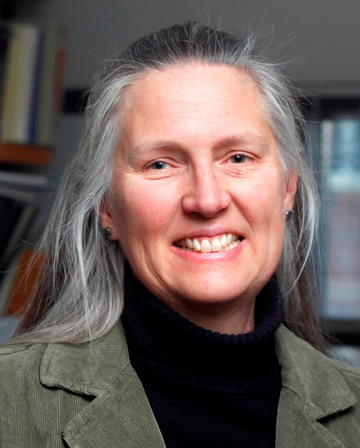
1557 Agronomy 716 Farm House Ln
(515) 294-4138
wpsuza@iastate.edu

1557 Agronomy 716 Farm House Ln
(515) 294-4138
wpsuza@iastate.edu
About
I serve as George Washington Carver Endowed Chair. The Chair is dedicated to the memory of George Washington Carver who was Iowa State University’s first Black student and faculty member. The Endowed Chair honors Carver’s spirit of service to all humans regardless of their race, gender, class, religion, or national origin.
Research:
Plants produce several sterols which accumulate preferentially in different organs. However, there is a gap in our knowledge about the direct role of individual sterols in plant growth and development. Fluctuations in the content of sitosterol and stigmasterol during development and conditions of stress suggest that these sterols modulate plasma membrane components or signaling activities essential for plant development and stress compensation. We are probing maize and Arabidopsis systems to increase our understanding of the direct roles of sitosterol and stigmasterol in plant growth and development. A full appreciation of the biological relevance of sitosterol to stigmasterol conversion will advance our understanding of the direct role of sterols in plant growth and development.
- Aboobucker, S.I., Showman, L.J., Lübberstedt, T., Suza, W.P. (2021). Maize Zmcyp710a8 mutant as a tool to decipher the function of stigmasterol in plant metabolism. Frontiers in Plant Science 12:732216. DOI: 10.3389/fpls.2021.732216
- Aboobucker, S.I., Suza, W.P. (2019). Why do plants convert sitosterol to stigmasterol? Frontiers in Plant Science 10:354. DOI: 10.3389/fpls.2019.00354
- Suza, W.P., Chappell, J. (2016) Spatial and temporal regulation of sterol biosynthesis in Nicotiana benthamiana. Physiologia Plantarum 157:120-134. DOI: 10.1111/ppl.12413
Teaching:
I teach courses on Genetics and Biotechnology and Crop Physiology for Agronomy majors. I strive to create a classroom environment that is interactive and accepting of the diverse views and beliefs of my students. Not only do I aspire to ensure that my students learn the nature of science, but I also challenge students to be appreciative of science application to address society’s challenges. My students learn to work in teams for critical evaluation of plant molecular biology, genetics, physiology, and biochemistry.
Genetics OER Textbooks
Genetics, Biotechnology, and Agriculture
Building Crop Improvement Capacity in Africa:
In addition to co-developing courses for the Iowa State University’s Distance MS in Plant Breeding Program, I served as the director of Plant Breeding e-Learning in Africa Program (PBEA) for 8 years. PBEA increased access to open educational resources (OER) on topics related to the genetic improvement of crops. PBEA OER were developed for use in curricula to train African students in the management of crop breeding programs for public, local, and international organizations. PBEA OER hone essential capabilities with real-world challenges of cultivar development in Africa using Applied Learning Activities. The PBEA team worked in collaboration with faculty at Makerere University in Uganda, University of KwaZulu-Natal in South Africa, and Kwame Nkrumah University of Science and Technology in Ghana.
- Suza, W. P., Mahama, A. A., Gibson, P., Aboobucker, S. I., Sibiya, J., Madakadze, R., Akromah, R., Edema, R., Lübberstedt, T., Retallick, M. S., & Lamkey, K. R. (2023). Educating the Next Generation of Plant Breeders in Sub-Saharan Africa. OpenISU. DOI: 10.31274/b8136f97.4e7ae532
- Suza, P., Gibson, P., Edema, R., Akromah, R., Sibiya, J., Madakadze, R., & Lamkey, K. R. (2016) Plant breeding capacity building in Africa. Nature Climate Change 6:976. DOI: 10.1038/nclimate3139
Plant Breeding OER Textbooks
- Principles of Cultivar Development
- Plant Breeding Methods
- Crop Genetics
- Molecular Plant Breeding
- Crop Improvement
- Cultivar Development
- Quantitative Methods for Plant Breeding
- Quantitative Genetics for Plant Breeding
Crop Biotechnology Outreach
- Esquivel, M. M., Aboobucker, S. I., & Suza, W. P. (2023) The impact of ‘framing’ in the adoption of GM crops. GM Crops & Food, 14:1-11. DOI: 10.1080/21645698.2023.2275723
- McMillen, M. S., Mahama, A. A., Sibiya, J., Lübberstedt, T., & Suza, W. P. (2022). Improving drought tolerance in maize: Tools and techniques. Frontiers in Genetics 13:1001001. DOI: 10.3389/fgene.2022.1001001
- Carzoli, K., Aboobucker, S. I., Sandall, L. L., Lubberstedt, T., & Suza, W. P. (2018) Risks and opportunities of GM crops: Bt maize example. Global Food Security 19:84-91. DOI: 10.1016/j.gfs.2018.10.004
- Suza, W. P., Kena, A., Akromah, R., Mugwanya, N., & Zeller, M. (2018). Fear holds back gene-edited crops — educate the public. Nature 563:626. DOI: 10.1038/d41586-018-07547-y.
News Releases:
- Iowa high schools encouraged to participate in new GWC Future Hunger Fighters Program (2025)
- Iowa State selected as support entity for new resilient food system initiative in Africa (2024)
- Two Iowa State Faculty Named to Inaugural World Food Prize Pioneer List (2024)
- ISRC funds three new soybean research projects, holds research day (2024)
- Suza Named George Washington Carver Endowed Chair (2023)
- CALS Entrepreneurship Fellow innovates to deliver engaging course material and save students money (2023)
- CALS announces seed grants to leverage existing and future research (2022)
- Grant Supporting International Food Security Awarded to Iowa State University, Colorado State University (2020)
- Anti-GMO sentiment has repercussions for developing world (2018)
- Iowa State University Partners with Ugandan University to Enhance Agricultural Research and Education in Africa (2016)
- Iowa State University Collaborative Research Seeks to Increase Corn Production in Africa (2015)
- Iowa State University agronomists to help develop new generation of plant breeders in Africa (2014)

